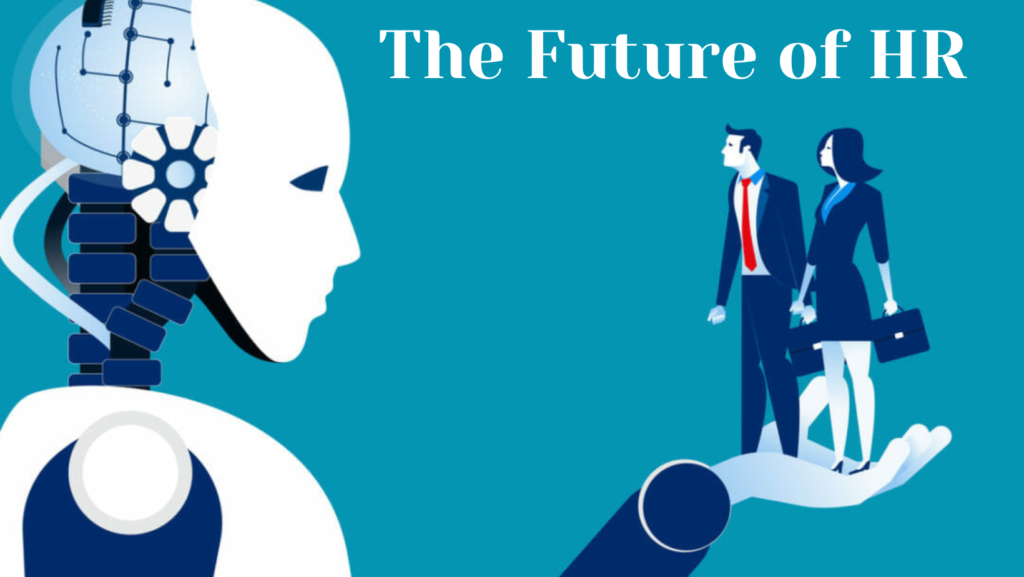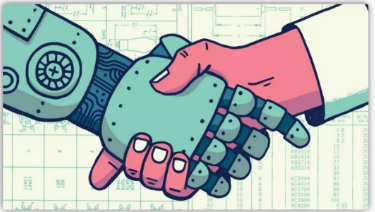
As the world of work continues to evolve, the role of Human Resources Management is becoming increasingly important. From managing a diverse and flexible workforce to promoting employee wellness and engagement, HR is at the forefront of shaping the way that organizations operate. At the same time, the integration of technology and artificial intelligence into HR is changing the way that HR is managed, presenting both opportunities and challenges.
Technology is critical for HR:
As technology continues to develop at a rapid pace, it is crucial for HR professionals to stay abreast of the latest trends and developments in the field. The future of human resource departments is likely to involve a greater emphasis on technology, data analysis, and strategic decision-making. Human Resources, in particular, have become a technologically advanced sector, one that is increasingly streamlined and working smarter. The following lines aim to provide an overview of the future of HR, examining the key trends that are shaping the field and the challenges and opportunities that these trends may present for HR professionals as they navigate the complex and rapidly changing world of work.

The Impact of Artificial Intelligence on HR:
As AI becomes more prevalent in the workplace, it will be important to understand how it is changing the way that HR is managed. This will enable HR departments to automate and streamline HR tasks such as recruiting, on-boarding, and performance management, as well as to analyze data to drive decision-making and measure the effectiveness of HR programs. Additionally, there may be an increased focus on employee engagement and retention, as well as on developing the skills and capabilities of employees
Another trend that is likely to shape the future of AI in HR is the increasing use of virtual assistants and chatbots. These technologies can be used to assist employees HR-related questions and tasks with more convenient and efficient access, freeing up HR professionals to focus on more strategic and value-added activities.
Where in HR has AI actually been deployed?
AI in Human Resources (HR) is typically deployed in the following area:
- Recruitment and Hiring: AI-powered tools can be used to screen resumes, conduct initial interviews, and even predict which candidates will be the best fit for the company, this is known as AI-assisted recruiting. AI can help companies find the right talent at the right time.
- Training and development: AI-powered tools can be used to personalize training and development programs optimize learning administration, and encourage collaborative learning for each employee, based on their skills and career goals, this is known as Learning management systems (LMS). Employees from different departments should learn together and exchange knowledge, and AI can help them pair up.
- Performance management: AI can be used to monitor employee performance, providing managers with real-time feedback and helping them to identify patterns and trends that can help improve the overall performance of the organization. AI can also be used to optimize the setting of goals and the tracking of progress, by analyzing data and making recommendations based on the individual needs of the company and the employees.
- Compensation and benefits: AI algorithms can be used to analyze data on employee performance and skills, and to make recommendations for appropriate levels of compensation and benefits. AI can also be used to optimize the design of benefit plans, by analyzing data and identifying the most effective options for the organization.
- Employee retention: AI algorithms can be used to identify employees who may be at risk of leaving the company and to develop strategies to retain them, this is known as Employee retention AI.
- Diversity and inclusion: AI algorithms can be used to identify and address unconscious bias in recruitment and hiring, as well as in performance evaluations and other HR processes. Diversity, equity and inclusion will play an even more prominent role in the future of HR.
Will AI Replace HR professionals?
Nothing can replace humans – and most times, even one human cannot replace the other. Therefore, saying that AI can replace HR professionals goes in vain. Undoubtedly, there are many benefits of accommodating Artificial Intelligence in the HR technology ecosystem to make the HR process easy. Still, it goes beyond words when it’s said that humans are necessary to make the final decision. In essence, AI is also the work of a human, where a human puts in the data, and the information is later collected by a human.
Conclusion:
The evolution of AI has gone a long and thorny path. However, its development resulted in beneficial AI implementation in our daily life. AI is becoming increasingly integrated into the field of Human Resources, and can be used to improve many aspects of the HR process.
It is evident that the role of HRM in the future will be of vital importance. As the nature of work continues to change, HR professionals will be instrumental in assisting organizations in adapting to new challenges and navigating the evolving landscape. It will be important for HR professionals to understand how it is changing the way that HR is managed. This includes tasks such as attracting and retaining top talent, fostering diversity and inclusion, and implementing employee engagement and retention strategies. HR professionals will be vital in ensuring that businesses have the necessary human capital to thrive in the future. Therefore, it is essential for companies to invest in the development of their HR professionals and ensure that they possess the skills and knowledge required to successfully address future challenges.
